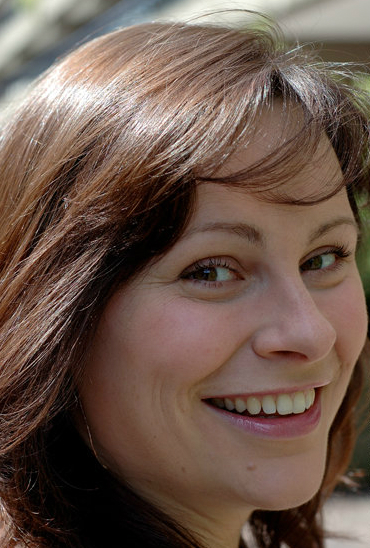Above: Musical Orbit meets the Tippett Quartet (via YouTube)
Musical Orbit is a new online mentoring service providing classical music lessons, free webinars and master classes from principals of the world’s leading orchestras, including the Royal Philharmonic Orchestra, London Symphony Orchestra and the Philharmonia. Former LSO and English National Opera violinist Nicole Wilson founded Musical Orbit last year, and while lessons are available for booking now, its official UK launch will take place on 20 April 2015.
How did the idea for Musical Orbit initially come about? What made you aware of the need for a service like this?
Lots of musicians who are studying at music college, or have recently graduated, have asked me for advice and help to further their careers. There are a huge number of programmes and services available to these musicians, but nothing that puts them directly in touch with the top musicians at orchestras.
There’s a catch-22 for auditions – if you don’t have experience then it’s difficult to secure jobs, but you can’t secure jobs if you haven’t built up your CV. It’s also quite a daunting experience when you tackle those first auditions.
I decided to launch Musical Orbit so that the next generation of musicians can get first-hand advice from musicians who have been in that position, and can help you get your foot into the door of the music profession. There’s not only one-to-one music lessons with the top principal players of orchestras, but also lots of free content, such as webinars exploring different topics and master classes.

How does it work in practice, for people interested in taking some classes?
You simply register on the website, which is free, and then have a browse through the different sections and choose which musician you’d like to connect with. There are different price options available on seven different levels, starting at £48 per hour. Then you can choose the best time for you from the dates and times provided, and book.
Once your lesson has been confirmed, Musical Orbit will ask that you send over some details about what your lesson will entail: do you have a special performance or audition coming up? What music are you going to be playing? This means that the musician taking the lesson can prepare in advance to make your lesson even more valuable. You also have the facility to record the lesson to use as a practice tool after the event, making the most of your contact time.
From a mentoring perspective, who signs up to offer their services through the site, and what do they get from it?
Orchestras are constantly going out on tours, visiting different cities and traveling all across the world. For the musicians, that means there’s a lot of time spent sitting in hotel rooms between rehearsals and performances. Now a principal violinist performing in New York can connect with a musician studying in London, for example, while they are waiting for an afternoon rehearsal.
Musical Orbit makes use of the wonders of the internet, providing a truly accessible service that cuts time and costs of travel and allows you to teach or be taught from the comfort of your living room. We have some of the top principal players of major orchestras ready to inspire and support the next generation of musicians, and we want people with experience and enthusiasm as mentors who are keen to share tips from the music profession with others.
https://www.youtube.com/watch?v=yQAj-7fCqOw
Are there any key partnerships with particular organisations that really help to drive the service? How might other interested parties become involved?
Ahead of our launch on 20 April, we’ve already begun to team up with orchestras and organisations to provide ticket discounts and other special offers to Musical Orbiters. We want to increase accessibility, not only to the music profession but also to classical music more generally. We want to encourage our followers to get involved in the industry and to take in as much as possible. Music colleges and conservatoires have been really supportive in sharing the news with their students, which is fantastic.
What do you hope the national/international balance will be like in terms of pupils and tutors?
Since we have only been up and running a few months, we are still quite UK-focused at the moment, but we’re gradually spreading throughout different continents and we hope that this will grow quickly. One of the integral factors of Musical Orbit is its accessibility, meaning we can connect with people from all over the world. We also want to reach into non-EU countries who may not have easy access to the same amazing benefits or levels of music education and outreach that some nations do.
What about further signposting for students beyond the conclusion of their course(s)? How will you gauge the success of the project in future?
We hope that by providing this link-up service, young musicians will be getting the best advice as early on as possible to help establish their careers. We’ve found that professional musicians are keen to pass on their knowledge to the next generation, but logistics get in the way.
Musicians and managers within the industry are always looking out for emerging talents to bring into the business, and this way established musicians can get to work with aspiring talents on their performance and technique, so that they’ll stand the best chance of succeeding in audition, competition and concert situations. We want Musical Orbit to help bridge that seemingly enormous gap between studying and actually breaking into a fantastically rewarding profession.


